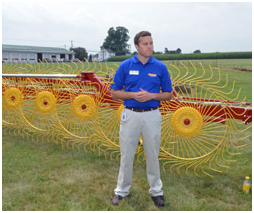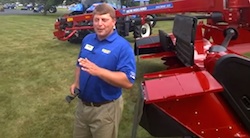 West Sacramento officials joined Bayer CropScience executives Tuesday to celebrate the grand opening of the company’s new $80 million dollar integrated research and development facility for biologics and vegetable seeds.
West Sacramento officials joined Bayer CropScience executives Tuesday to celebrate the grand opening of the company’s new $80 million dollar integrated research and development facility for biologics and vegetable seeds.
“This really fits into our strategy to invest in innovation here in the U.S.,” said Bayer CropScience global CEO Liam Condon at the ribbon cutting ceremony. “This is a global site so what comes out of here will help, first of all is going to help West Sacramento, second it’s going to help California, third it’s going to help U.S. agriculture, and at the end of the day it’s going to help global agriculture.”
West Sacramento Mayor Christopher Cabaldon believes strongly in Bayer’s mission and is proud his city is playing an important role. “If we’re going to solve the world’s, our country’s and our community’s most significant challenges … it’s going to be led by Bayer CropScience here at this facility.”
Bayer bought an existing building to speed up the process of getting it on line but there was still extensive construction and improvements done – all of it in less than nine months. “This is the kind of project we love, we are as impatient as the Bayer CropScience global team in making this happen,” said Cabaldon.
Mike Millie, the West Sacramento site manager, was very grateful to the city of Sacramento and the construction team that made this happen so quickly and safely. “We had 65,000 man hours of work and not one safety incident,” he said.
We’ll hear from Condon, Millie, Bayer North America President and CEO Jim Blome, and several others who are excited about this new facility in upcoming posts. Listen to remarks from the grand opening here: Bayer CropScience Biologics Center Grand Opening













